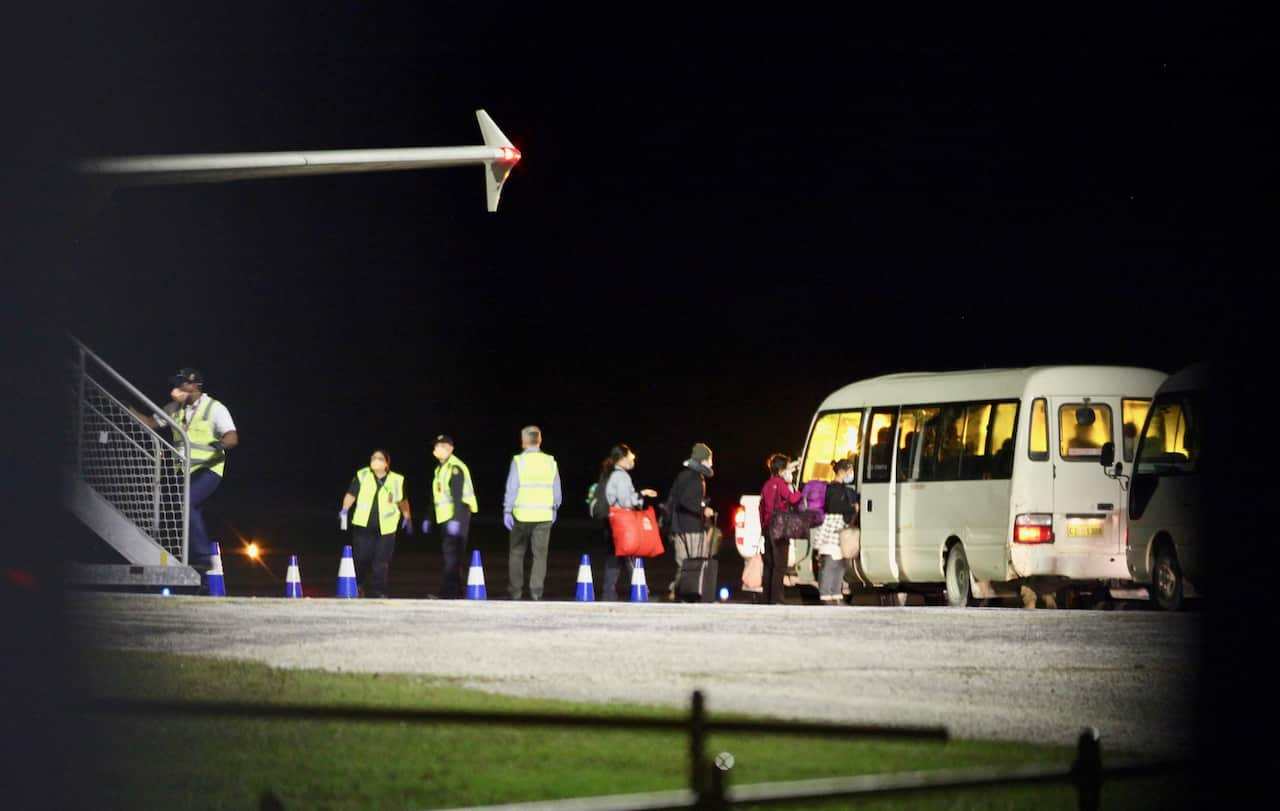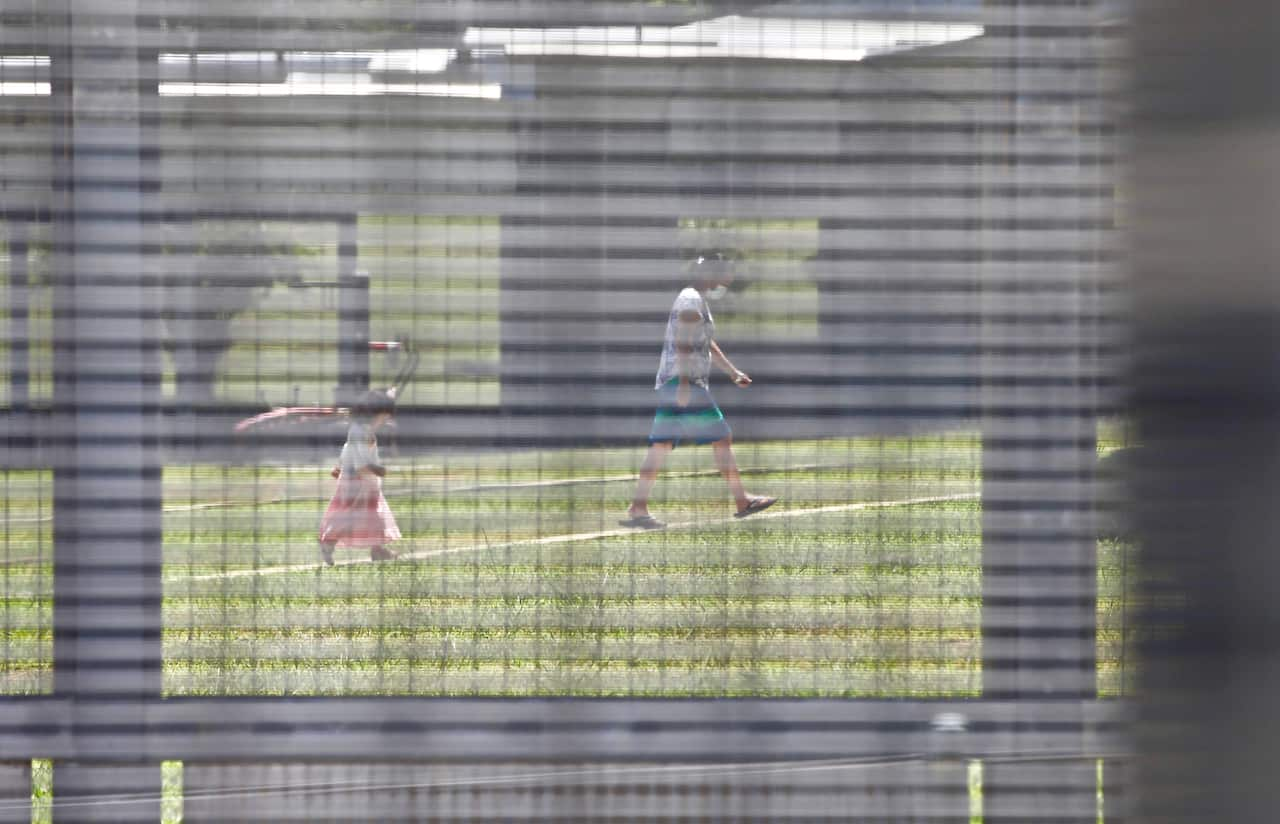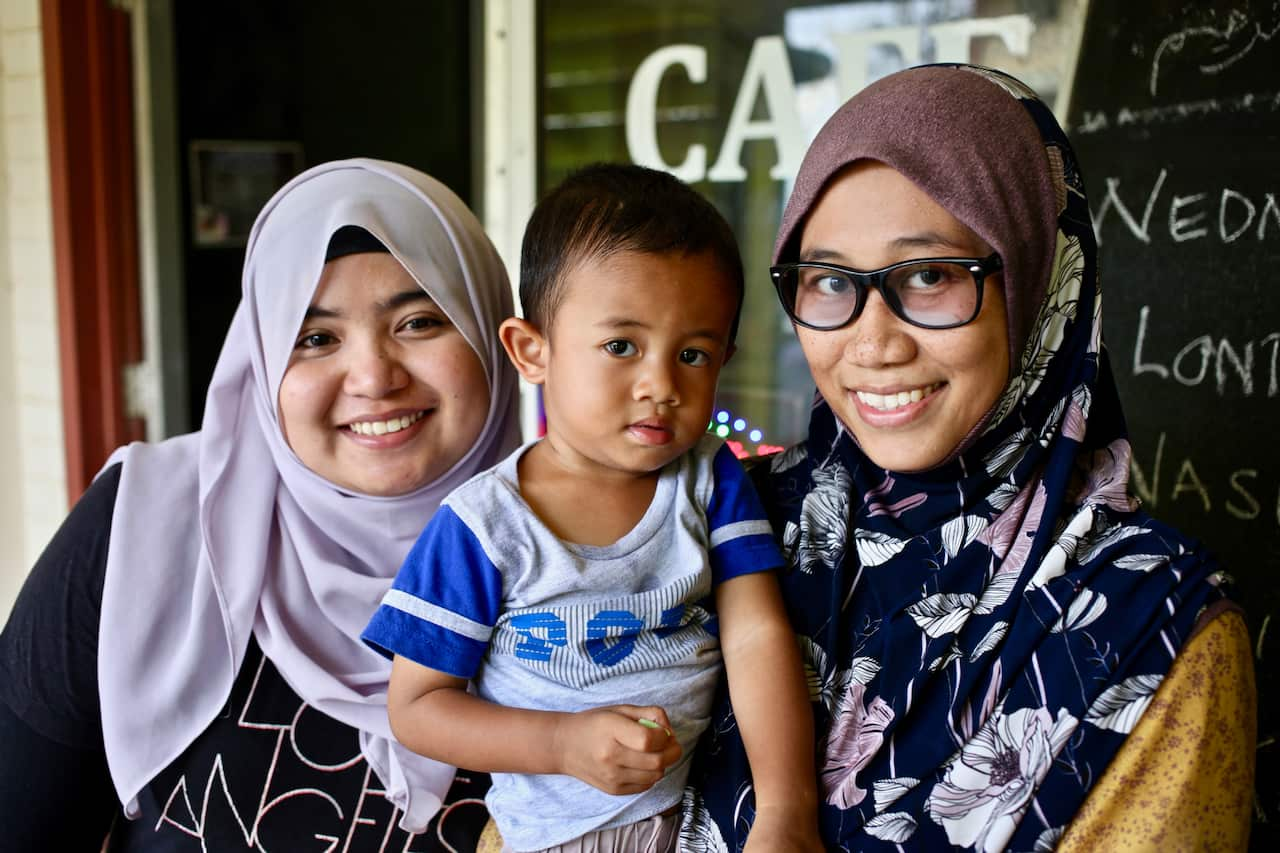For the past seven days, 276 Australians and permanent residents have lived behind caged fences, wearing surgical masks at all hours of the day.
They’ve lived together but separated, into three compounds and again divided into individual family units.
Children have been warned not to play with other children.
This is life inside the Immigration Detention Centre on Christmas Island, which one-week ago became a quarantine facility for Australians fleeing Wuhan and the deadly coronavirus.
So far, no one inside the camp has tested positive for novel coronavirus.

During the first week, a young girl displayed flu-like symptoms, but her tests came back negative.
Late on Monday, SBS News confirmed that an adult with symptoms consistent with coronavirus had been isolated from the rest of the camp, pending the results of sample tests.
Those results are expected within 48 hours.
The clock is ticking
If no positive cases are detected over the final seven days of quarantine, the first group of 241 arrivals will be allowed to return home on Monday.
Until then, these people will continue trying to live an ordinary life, under extraordinary circumstances.
“I think when people arrived, they were absolutely exhausted and they were worried about coming here, to this facility,” Australian Medical Assistance Team clinical lead Dr Dan Holmes tells SBS News.
“They were extremely grateful to be out of Wuhan because I think things were challenging there."

Like other staff and personnel, Dr Holmes will have spent 14 days inside the detention centre, the entire duration of the quarantine period.
“I can understand that people had worries at the start, but it’s fairly accepted now that, in fact, people feel that we’ve been treating them as well as we can do.”
Amy Xia and her two children were among the first to arrive at the detention centre one week ago.
“[Staff at the camp] are very nice. They try their best to satisfy us,” she says.
Mental health
Maintaining mental health inside the sprawling immigration detention centre at Northwest Point on Christmas Island is an ongoing process.
The facility was reopened at a cost of $1.4 billion by Prime Minister Scott Morrison in February 2019, after laws were passed allowing the medical evacuation of refugees to the Australian mainland.
No asylum seekers from offshore detention have been brought to the facility since. A Tamil family from Biloela fighting deportation to Sri Lanka have been the only occupants since August last year.
Its design allows for families to be segregated, part of the reason it was chosen to quarantine coronavirus evacuees.

Health officials have warned that maintaining mental health and wellbeing among the population is essential to ensuring the integrity of the 14 day quarantine period.
“When we go around in the morning and speak to people, it's not just ticking a box and checking their temperature. Its also asking, ‘how are you doing?’" Dr Holmes says.
“Our staff have gotten to know the evacuees very well, we’ve had the same staff going into the same accommodation blocks every day.”
He says evacuees are able to contact a psychologist or mental health professional via telephone.
“That’s a mechanism we normally use for our own staff. Under these circumstances, we’ve widened that for the people that are here,” he says.
A new normal
To commemorate the end of Lunar New Year last week, evacuees were given an impromptu concert.
Australian Defence Force personnel, AUSMAT health officials and some evacuees performed classical and contemporary music amid candlelight on a grassed area of the compound.
“These [activities] that we do have logistics around them to keep people separated in their family groups,” Dr Holmes says.
“We’ve got a library service where we can go around and deliver books, lots of the kids have either come with musical instruments or we’ve been able to get them musical instruments to use while they’re here."
“New games, crafts, whatever we can do to make life as normal as it can possibly be, accepting that it can never be completely normal here”.
For residents of Christmas Island too, hosting the facility has been an adjustment.
“They are Australians, and so I think we should do what we can to help them out,” one resident tells SBS News.
Even after a week, fears still linger over the potential spread of the coronavirus. Some locals have reported a lack of consultation and information provided by the Federal Government before and after the announcement was made.
“The Federal government does whatever it wants with Christmas Island, and the people here just have to take it,” Christmas Island Shire President Gordon Thomson said.
Countdown begins
Now that the first seven days of a 14 day quarantine period are over. The next week promises to be an anxious wait.
On Monday afternoon, a C-130 Hercules delivered a new diagnostics machine for the rapid testing of coronavirus on Christmas Island.
The new machine will allow the testing of mouth swabs and deliver results on the island within 2-3 hours.
“Obviously the ability to test for this virus is very new, because its only been discovered recently,” Dr Holmes says.
“The blueprint for humans is DNA, for some viruses the blueprint is RNA."
“That machine will allow us to take a sample and break up the RNA. Knowing which parts are unique to novel coronavirus, it's able to give us an answer much more quickly while we’re here on the island as to whether someone has that virus in their system.”
If no one among the 276 evacuees inside the camp develops symptoms consistent with coronavirus over the next seven days, then all will be free to leave.

SBS News understands that as many as three charter flights will be arranged to fly from Christmas Island to Perth as well as to cities on the east coast, where a majority of evacuees live.
At that point, it will be back to life as normal in Australia.
“Everyone is keen to get home as soon as they’re able to,” Dr Holmes says.
“But broadly speaking, everyone is doing very well.”

